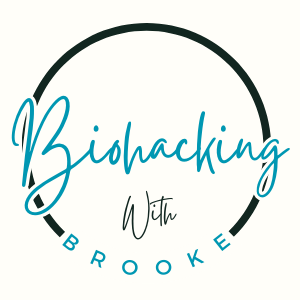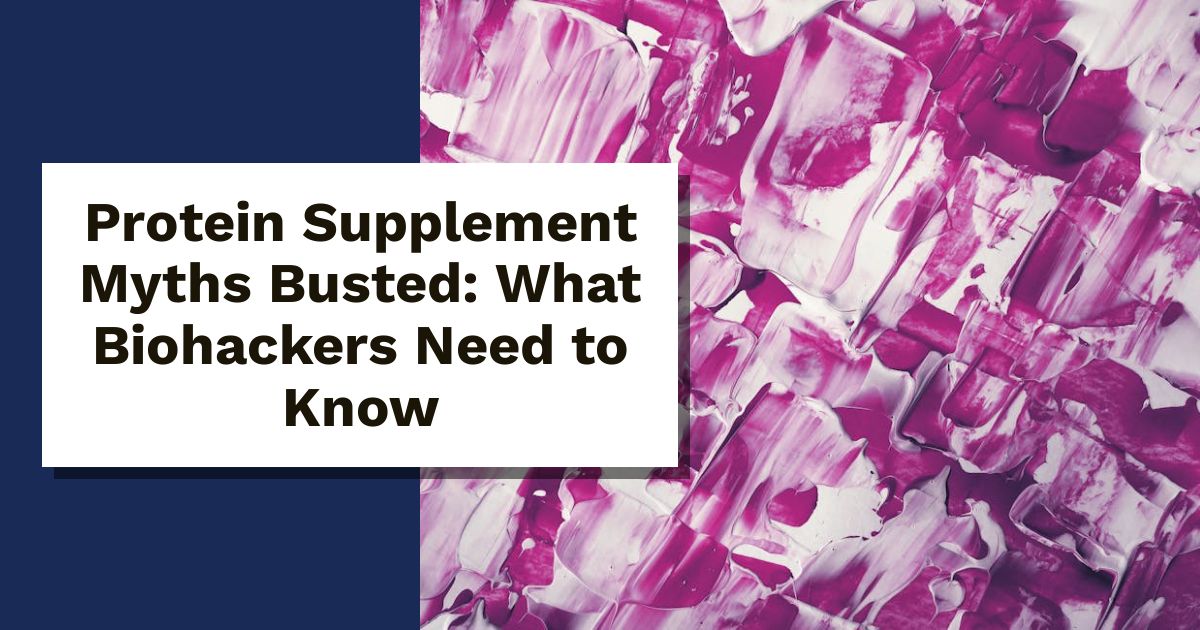Protein supplements are everywhere, and for biohackers, they’re practically a pantry staple. But with their popularity comes a lot of noise—and some of it is just plain wrong. Are they only for bodybuilders? Will they wreck your kidneys? It’s time to cut through the confusion and set the record straight. Let’s bust some myths so you can fuel smarter and focus on what really works.
Common Myths About Protein Supplements
Protein supplements are often misunderstood. There’s a good chunk of myths floating around that confuse even seasoned biohackers. If you’ve ever hesitated to grab a protein shake, it’s time to clear the air.
Myth 1: Protein Supplements Are Only for Bodybuilders
Think protein is just for gym buffs flexing in the mirror? Think again. Protein is essential for everyone, from busy parents to weekend warriors. It helps repair tissue, boosts immune function, and keeps you fuller longer. Sure, bodybuilders use it for muscle growth, but it’s not their exclusive territory.
Protein powders can be a lifesaver for anyone who struggles to meet daily protein needs. Whether you’re a desk dweller or an endurance runner, a scoop of protein can fill nutritional gaps. Learn more about universal protein needs here.
Myth 2: Too Much Protein Is Harmful
Scared that extra protein will fry your kidneys? Unless you have pre-existing kidney issues, this is wildly overstated. Your body is great at handling protein – we’ve been eating it for centuries! Keep in mind, though, balance matters.
Experts recommend around 0.8 g of protein per kilogram of body weight for the average adult. Going above this may increase your calorie intake but won’t instantly harm a healthy body. Find out more about protein intake and kidney health.
Myth 3: Natural Sources Are Always Better
Sure, eating natural foods like chicken breast or lentils is awesome. But let’s be real: life’s hectic. Want to grill a steak in between meetings? Didn’t think so. That’s where protein supplements shine. They’re quick, reliable, and portable.
While whole foods include fiber and nutrients, protein powders come in handy for busy people or those with dietary restrictions. Convenience doesn’t mean compromise. Here’s why “natural” isn’t always superior.
Myth 4: Protein Supplements Cause Weight Gain
Protein supplements won’t magically make you gain weight. Weight gain happens when you eat more calories than you burn—simple math. Protein can even help maintain muscle when dieting or aging.
Pay attention to the extras in your shake. Sugar and high-calorie additives can sneak in unnoticed. When used wisely, protein supplements enhance nutrition without tipping the scale. Here’s how they fit into a healthy lifestyle.
Myth 5: All Protein Supplements Are the Same
This couldn’t be further from the truth. Protein powders vary in source (whey, pea, soy), digestion speed, and nutritional content. Whey isolate, for instance, is low in carbs and fats, making it great for cutting phases, while casein provides slow-digesting protein ideal for nighttime recovery.
Check labels and pick one tailored to your needs. Look out for hidden sugars, fillers, or allergens. Here’s a guide to choosing the best protein powder for you.
Don’t let these myths sideline your health goals. Protein supplements are for everyone – smart biohackers know how to use them wisely!
Benefits of Protein Supplements
Protein supplements aren’t just for gym enthusiasts. They’re compact nutrition powerhouses designed for people from all walks of life. Whether you’re short on time, recovering from a workout, or trying to manage your weight, protein supplements offer flexibility and solutions. Let’s explore how they can fuel your goals.
Convenience for Busy Lifestyles
Life moves fast, and not everyone has the luxury of prepping perfectly balanced meals. This is where protein supplements shine—a quick shake or bar can give you the nutrition you need in minutes. They’re ideal for office workers, students, parents, and anyone on the go.
Think about it: instead of skipping a meal or grabbing junk food, you could have a protein shake that’s ready in under a minute. That’s not cutting corners—that’s working smarter. According to Harvard Health, protein is essential for everyday functions like immune support and muscle maintenance, making these supplements a convenient and valuable choice.
Support for Muscle Recovery
After a tough workout, your muscles need fuel to rebuild. Protein is the building block your body depends on to patch up those tiny muscle tears caused by exercise. Consuming protein shortly after a workout is like giving your muscles the tools they need to come back stronger.
Whey protein, in particular, is a top pick for recovery because it’s digested quickly and packed with essential amino acids. A review on recovery protein powders by Garage Gym Reviews highlights whey as an effective post-exercise option. If you’re serious about reducing muscle soreness and improving performance, this is a no-brainer addition to your routine.
Aiding Weight Management
Protein has a superpower: it keeps you full. If you’ve ever tried to cut calories, you know the struggle of constant hunger. Protein supplements are a game-changer here. They help curb cravings, boost your metabolism, and protect lean muscle mass even when you’re in a calorie deficit.
Research cited in Healthline shows that protein can reduce appetite and improve satiety, which means you’re less likely to overeat later. Incorporating a protein shake or snack into your day can make weight management feel less like a battle.
Variety of Options
Not all protein supplements are created equal. Fortunately, the market offers something for everyone, whether you’re lactose-intolerant, vegan, or looking for a specific type of protein. Here are some common options:
- Whey Protein: Fast-digesting and ideal for post-workout recovery.
- Casein Protein: Slow-digesting for sustained release, great before bed.
- Soy Protein: Plant-based with a complete amino acid profile.
- Pea Protein: Allergy-friendly and easy to digest.
- Hemp Protein: Packed with omega-3s and a nutty flavor.
For a deeper dive into types of protein powders, check out this guide from Hy-Vee, which breaks down their unique benefits.
Protein supplements are more than just a trend—they’re a practical, versatile tool for anyone looking to optimize their nutrition. Whether you’re juggling a busy schedule, hitting the gym hard, or working towards your ideal weight, the right supplement can make a big difference.
Choosing the Right Protein Supplement
Not all protein supplements are created equal, and choosing the right one can feel like a maze. Labels, ingredients, dietary compatibility—there’s a lot to consider! Here’s how to simplify the process and find the perfect fit for your goals.
Understanding Labels and Ingredients
Protein supplement labels might look like they’re written in a secret code, but cracking it is easier than it seems. Always check for the following:
- Protein Source: Look for clear information about where the protein comes from (e.g., whey, soy, pea). The source affects digestibility and nutrition. For example, this guide on understanding labels can help you assess your options.
- Protein Content per Serving: A good supplement offers at least 20 grams of protein per serving.
- Additives: Watch out for added sugars, artificial flavors, and unnecessary fillers.
- Third-Party Testing: Certifications like NSF or Informed Sport ensure the product is safe and free of banned substances.
- Allergens: Scan for common allergens like lactose, soy, or gluten if you’re sensitive.
If a label feels vague or overloaded with “proprietary blends,” it’s a red flag. Transparency is key! Learn more here.
Considering Dietary Needs
Protein supplements should fit your lifestyle, not the other way around. Whether you’re vegan, lactose-intolerant, or allergic to certain foods, there’s a product for you:
- For Vegans and Vegetarians: Plant-based options like pea, hemp, and rice protein are excellent choices. They’re nutrient-rich and easy to digest, as discussed in this guide.
- For the Lactose-Intolerant: Whey isolate is nearly lactose-free, making it a good option. Alternatively, plant-based proteins are completely dairy-free.
- For Food Allergies: Pea protein is often hypoallergenic, making it a safe bet for many with sensitivities.
Consider experimenting with single-serve packets to find what works best for you. Your dietary needs are specific; your protein supplement should be, too.
Consulting with Professionals
Before you hit “buy” on a protein tub, why not double-check with a pro? Dietitians and nutritionists have the expertise to recommend the right product for your health goals.
Not sure if your current diet already provides enough protein? A quick consultation can fill in those gaps. Plus, they can alert you to potential interactions if you’re on medication or following a specific diet plan. Here’s why expert advice matters.
Talking to a professional saves you from wasting money on supplements you don’t need—or worse, choosing one that doesn’t align with your health. Think of this as your roadmap to making smarter, safer choices!
Conclusion
Protein supplements aren’t surrounded by mystery—they’re just misunderstood. Myths like “they’re only for bodybuilders” or “they’ll harm your kidneys” tend to overcomplicate something simple. The truth? They’re a flexible, practical tool for anyone aiming to optimize their nutrition.
If you’re ready to cut through the noise, start by choosing a product that fits your needs and lifestyle. Read the labels, stay mindful of ingredients, and consult a dietitian if needed.
Your health goals deserve solid choices, not outdated myths. What will your next move be?
Brooke is a rock-climbing 🧗♀️, tennis-playing 🎾, biohacking 🧬 bookworm 📚 on a mission to unlock the secrets of health, longevity, and living life to the fullest 🌟. When she’s not scaling cliffs, hitting the courts, or testing out the latest hacks, you’ll find her nose in a book or adventuring with her four-legged best friend 🐕 by her side. With a knack for turning science into simple, actionable tips, Brooke’s writing is your guide to hacking your biology and living your best, most vibrant life!


